We have just passed through a major milestone at the Iowa Legislature - the first funnel. Most legislation has to be approved by a subcommittee and a committee of either the House or Senate in order to move forward. What this means is that a large number of bills have been rejected for the year.
Unfortunately legislation to rein-in the use of eminent domain on agricultural land for private gain failed to advance. Although this is a setback, we are not giving up.
Other bills remain active - efforts to change the bottle deposit law which will make it less convenient to return empty containers, efforts to restrict additional land being added to our parks and recreation areas, efforts to restrict the siting of solar farms, and misguided efforts to implement the I-Will 3/8 cent sales tax while funneling significant amounts of money from its original purpose. We are deeply concerned about these bills.
We will continue to be your eyes and ears at the state capitol.
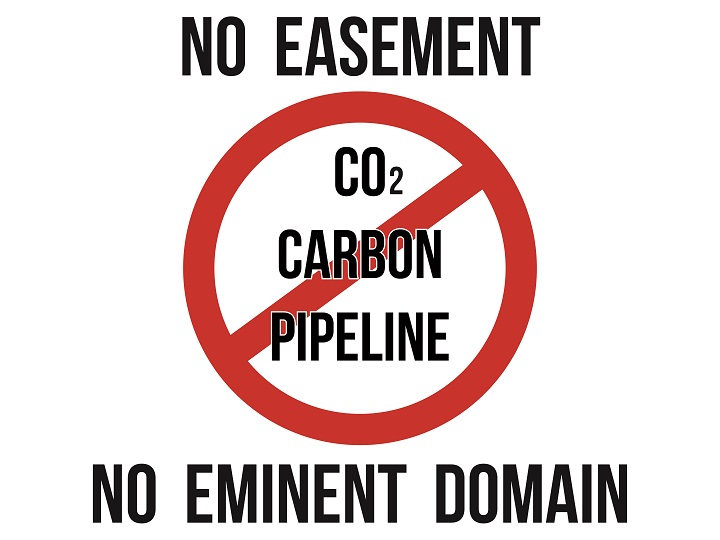
Take care,
Pam Mackey Taylor, Chapter Director and Newsletter Editor
What you can do to help the environment
- Tell Governor Kim Reynolds that you want her to support legislation that would prohibit the use of eminent domain on hazardous liquid pipelines
- Ask your legislators to keep the bottle deposit law working for all Iowans
- Tell your state senator to oppose unnecessary solar farm restrictions
- Ask your state senator to oppose restrictions on the price the DNR and county conservation departments can spend on purchasing land for parks
- Ask your state senator to oppose the I-Will portion of the tax reform bill
- Donate to the Iowa Chapter of the Sierra Club so that we can continue this work in 2022
In this issue of the Iowa Sierran
Water Quality
News from the Legislature
-
Funnel stalls legislation prohibiting eminent domain for hazardous liquid pipelines
-
Ask legislators to keep the bottle deposit law working for all Iowans
-
Broken Trust: Senate bill to implement I-Will violates public trust
Events
-
Join us for interesting and informative webinars and Lunch and Learns
Plus
-
Contribute to the Iowa Chapter
-
Volunteer for the Iowa Chapter
-
Calendar of events
-
To see the archive of previous Iowa Chapter newsletters
-
To see the White Pine Needle newsletter
594 Waterbodies on New Impaired Waters List
The Iowa Department of Natural Resources (DNR) recently released its draft 303d impaired waters list – a list of Iowa waterbodies that do not meet water quality standards. The list shows 594 waterbodies that do not fully meet one or more of the standards for the intended use of the waterbody and are needing water quality improvement plans. Those water bodies are affected with 783 impairments (or pollutants).
First, some definitions.
Every few miles of a river or stream is called a segment or waterbody; lakes and reservoirs are also called waterbodies; as are wetlands.
Waterbodies are given an intended use – primary contact which is swimming, secondary contact which is eating fish from the water, and drinking water use.
Water quality standards are levels of contaminants allowed in a waterbody for its intended use.
When measured levels of the contaminants in a waterbody are higher than the standards, the water is impaired (polluted). A waterbody can have more than one impairment.
Impairments include E coli, mercury which is found in fish tissue, temperature, chloride, nutrients, sediment, industrial chemicals, and other pollution.
A note about the impairments
Many of the impairments identified in this year’s list are caused by runoff from agricultural fields – soil, manure, and fertilizer. For rivers and streams, those impairments include indicator bacteria, organic enrichment, nutrients, dissolved solids, and turbidity. For lakes, reservoirs, and wetlands, those impairments include turbidity, algal growth, indicator bacteria, sediment, and pesticides. Out of the 81 fish kills, agricultural runoff was the largest contributor, which is reported as animal waste, pesticides, fertilizer spill, and silage runoff.
More than a third of the fish kills were due to animal waste. That leads to the conclusion that they were caused by confined animal feeding operations.
What you can do
You can see more information about the list on the DNR’s website
You can also comment on the impaired waters list through March 19, 2022:
- Send an email to IRcomment@dnr.iowa.gov
- Send a letter to
Iowa Department of Natural Resources
Attn: Impaired Waters/Segment List Water Quality Monitoring & Assessment Section
Wallace State Office Building
502 E. Ninth St. Des Moines, IA 50319
What happens once a waterbody is flagged as impaired?
When a waterbody is placed on the impaired waters list, the Department of Natural Resources is required to create a total maximum daily load (TMDL). That initiates a planning process for bringing the waterbody back into compliance with water quality standards. Water Quality Improvement Plans lay out what is needed.
The state has lagged in implementing the Water Quality Improvement Plans for several reasons – money to actually perform the work and the need to enforce the reduction of agriculture runoff. It is very obvious that the agriculture community needs to step-up their efforts in reducing runoff and pollutants entering our water bodies. That is where the Nutrient Reduction Strategy comes into play.
On this year’s list, there are 157 water bodies that are impaired but not on the impaired waters list – those that already have Improvement Plans or those where a plan is not required. Basically, the waters are impaired, but without money, there will be no effective effort to clean them up.
This year, 48 waterbodies were delisted plus 563 waters need further investigation and monitoring.
Policy considerations
The Sierra Club recommends the following policies to improve Iowa’s water quality:
- Funding for developing Water Quality Improvement Plans. All of the waterbodies on the impaired list need to have these plans developed.
- Equally important is for funding to implement the Water Quality Plans.
- Implementing the Nutrient Reduction Strategy plus strengthening it to include goals, requirements, and measurable outcomes.
- Implementing a moratorium on building new and expanding existing confined animal feeding operations (CAFOs).
- Modifying the rates manure can be applied to farm fields, to match current research.
- Striving for testing more waterbodies each year.
- Maintaining and increasing funding for the Department of Natural Resources so that the staff can stay on top of permits (NPDES permits), implement new EPA requirements, and monitor and enforce water quality standards.
- Funding the Leopold Center for Sustainable Agriculture at Iowa State, which has a history of researching farming practices that reduce water pollution and build soil health.
- Working on carbon sequestration from agriculture which can have great benefit on improving water quality.
Update on CO2 pipelines
Funnel stalls legislation prohibiting eminent domain for hazardous liquid pipelines
Bills were introduced in the House and Senate that would restrict the use of eminent domain on agricultural land for private development projects, such as the carbon dioxide pipeline projects now being proposed to slice through Iowa. The bill introduced in the Iowa Senate by Senator Jeff Taylor passed a subcommittee, but was not brought up for a vote in the Commerce Committee. Representative Tom Jeneary introduced a bill into the House, which did not even get a subcommittee review.
Because those bills did not advance through the legislative committees by February 18, they were "funneled out" and will not advance through the rest of the legislative process. We are disappointed, but we are not giving up.
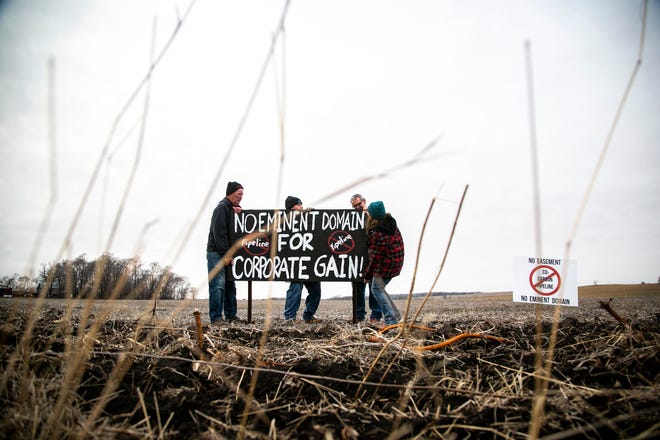 Tell Governor Kim Reynolds that you want her to support legislation that would prohibit the use of eminent domain on hazardous liquid pipelines via her E-Mail Note: To electronically send a letter to the governor, you must use the governor's E-Mail system on her website. Or phone her office at 515-281-5211. Ask that she oppose the use of eminent domain to take easements from landowners who do not want the pipeline crossing their fields. The landowners need to be treated justly and fairly. It is a matter of fairness that their private property rights be respected.
Tell Governor Kim Reynolds that you want her to support legislation that would prohibit the use of eminent domain on hazardous liquid pipelines via her E-Mail Note: To electronically send a letter to the governor, you must use the governor's E-Mail system on her website. Or phone her office at 515-281-5211. Ask that she oppose the use of eminent domain to take easements from landowners who do not want the pipeline crossing their fields. The landowners need to be treated justly and fairly. It is a matter of fairness that their private property rights be respected.
One of the many reasons we oppose the carbon dioxide pipelines proposed to run through Iowa is that the law allows the use of eminent domain to force landowners to give up their land for the pipelines. Eminent domain is one of the most drastic actions that can be taking against private property rights. It should be exercised only for a public purpose and only by a governmental entity responsive to the public. It should not be used to enrich a private company, such as the companies developing the carbon dioxide pipelines.
The Iowa Legislature has a history of protecting private property from eminent domain for private gain. In 2006 the Iowa legislature, almost unanimously in both houses, passed a law (Iowa Code Sections 6A.21 and 6A.22) prohibiting the use of eminent domain on agricultural land for private development purposes. But the law made an exception for projects approved by the Iowa Utilities Board, apparently on the theory that the Utilities Board would approve the project only if it served a public purpose. However, that one exception, in hindsight, was a mistake.
The legislature probably assumed that if the Utilities Board granted a permit for the project, the project served a public purpose. But we have learned from experience in the Dakota Access pipeline, that this assumption was unjustified. And that is true with other projects, where the companies hold sway, and the public interest doesn’t count.
We have also seen that the companies pursuing projects use the threat of eminent domain to coerce and intimidate landowners into signing “voluntary” easements or sale of their property. On the other hand, we have seen companies, if they do things correctly, can obtain the land or easements they need without eminent domain. This has been done for large solar and wind energy projects and electric transmission lines.
It is also important to note that, at this point, 18 county boards of supervisors have submitted objections to the carbon dioxide pipeline projects in the Utilities Board dockets. Some of these boards are controlled by Republicans and some by Democrats. Again, this issue in bipartisan. They all identify the abuse of eminent domain as a primary objection.
The people of Iowa, and especially the impacted landowners, are united in their opposition to using eminent domain for private projects.
Unnecessary solar farm restrictions proposed
The bill SF2321 (formerly SF2127) restricts where commercial solar farms can be built:
-
Requires setbacks of 1250 from nearest adjacent landowner
-
Must be built on farmland with corn suitability rating (CSR) of 65 or lower
-
Must be more than half a mile from other solar farms
Sierra Club is opposed to this bill. The setback does not need to be 1250 feet. Landowners should be allowed to put a solar farm on their land, regardless of the corn suitability rating. There is no reason to keep solar farms more than half a mile apart. These restrictions are unnecessary.
Ask your state senator to oppose SF2127.
To look up your senate member, see www.legis.iowa.gov/legislators/senate
To find your legislators, see www.legis.iowa.gov/legislators/find
Ask legislators to keep the bottle deposit law working for all Iowans
Since its inception in 1978, Iowans have benefitted from the bottle deposit law. We are all familiar with paying a nickel deposit on plastic, glass, and metal pop and alcohol containers which is returned to us when we bring the empty bottles back to the store.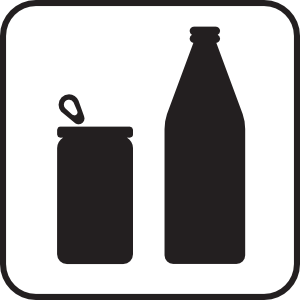
Tell your legislators that you want to keep the bottle deposit law working for all Iowans by
- increasing the redemption fee to 2 cents
- keeping the distance between stores and redemption centers at 10-minutes, so that all Iowans have a convenient location to return their empty containers. There are efforts underway to increase this to 15 or 20 miles, which will make it increasingly more difficult to return the empties.
- expanding the law to include juice and water containers
- keeping empty container redemption in the grocery stores and convenience stores.
The Bottle Deposit Law is Popular. In fact, Iowans support expanding the bottle deposit law to include other beverage containers. The bottle deposit law diverts containers from the landfill and into recycled products. And the recycled bottles and cans provide a clean well-sorted valuable product. Further by encouraging recycling, less litter is strewn across the state. The bottle deposit law even provides spending money to those who collect discarded bottles and cans. The bottle deposit law provides jobs to Iowans who are involved in the recovery process. Iowa’s bottle deposit law has been a success.
To find your legislators, see www.legis.iowa.gov/legislators/find
To look up your house member, see www.legis.iowa.gov/legislators/house
To look up your senate member, see www.legis.iowa.gov/legislators/senate
Effort underway to restrict purchasing land for parks
The Senate Natural Resources committee advanced a bill that would place severe restrictions on public land acquisition. SF2312 (formerly SSB3134) would limit the amount of money the Department of Natural Resources (DNR) and county conservation boards could pay for land that would become part of park and recreation areas. That cap, which varies by the type of property, is less than the assessed value of the land. Further the bill restricts the amount that landowners could deduct from their income taxes if the land is purchased by the DNR or county conservation boards at less than the assessed value.
Ask your state senator to oppose SF2312.
To find your legislators, see www.legis.iowa.gov/legislators/find
To look up your senate member, see www.legis.iowa.gov/legislators/senate
- At a time when Iowans are visiting the state's parks and recreation areas in unprecedented numbers, we should not be restricting additions of land to those parks or the ability to create new parks and recreation areas.
- Limiting and mandating the amount of money that a landowner can receive for their land should they sell it to the Department of Natural Resources or to county conservation boards is unfair to the landowner.
- Forcing the landowners to sell the land for less than market value violates their property rights.
Broken Trust: Senate bill to implement I-Will violates public trust
The Iowa Senate is considering a bill (SF2206, formerly SSB3074) to implement the 3/8 cent sales tax that would fund the Natural Resources & Outdoor Recreation Trust Fund (commonly known as I-Will). This proposal falls flat and should be returned to the drawing board. This bill passed the funnel and is still active.
Although we have waited a long time to implement I-Will and its 3/8 cent sales tax increase, this proposal falls short in many ways. When the constitutional amendment was put on the ballot and voters went to the voting booth, the voters also were given a framework of how the I-Will money was going to be allocated and implemented, in Iowa Code 461.31 through 461.38. This is what the voters made their decision on. The language in SF2206 (formerly SSB3074) breaks that trust.
Ask your State Senator to remove the I-Will changes in SF2206.![]()
To look up your senate member, see www.legis.iowa.gov/legislators/senate
To find your legislators, see www.legis.iowa.gov/legislators/find
-
Our parks and recreation areas have faced serious financial challenges - deferred maintenance, fewer park rangers, and damage from derecho and floods. All the while they have experienced expanded visits by Iowans and out-of-state visitors who love our parks. The state parks need the full funding that was imagined by the 3/8 cent sales tax.
-
The I-Will sales tax will expire in 2051. That is contrary to what the voters expected, which was a fund with no expiration date.
-
Diverting that funding to the nutrient reduction strategy, making that the top priority, misses some of the benefits of the state parks -- providing wildlife habitat, protecting threatened and endangered species, providing recreation, and providing solitude.
-
What's more there are no limits on the nutrient reduction strategy expenditures - including ensuring and verifying that the projects funded actually are reducing nutrients and setting water quality standards for nutrients and ensuring that the standards are met in a timely manner.
-
The bill puts Economic Development in charge of scoring those projects that are used for recreational purposes. These projects would include parks, recreation areas, water trails. That function should remain with the Department of Natural Resources. Economic Development has an entirely different focus - promoting economic development projects in the state - and should not be put in charge of parks and recreation.
-
Improvement of a land trail will be funded only if the maintenance of the trail will come from other sources. There is no reason that the maintenance should be excluded from the I-Will funds.
-
This bill changes how the funds are allocated. The allocation was a result of a compromise between the various parties who benefit from the I-Will 3/8 cent sales tax. There is absolutely no reason to change those allocations.
-
This legislation obviously took a significant amount of time to develop, write, and fine-tune. Yet the citizens of Iowa - the taxpayers - are being given only a few days to review it before the committee/subcommittee process begins. Reviewing the details in just the few pages that cover the 3/8 cent sales tax has required a number of hours, reviewing existing statutes, and thinking through the changes. Quite frankly, the citizens deserve more time than this.
It may be tempting to jump at having some money dedicated to the I-Will programs, but we can do better. That is why we are asking that the Senators remove the Natural Resources and Outdoor Recreation Trust Fund from the tax reform bill SF2206 (formerly SSB307).
Ask your State Senator to remove the I-Will changes in SF2206.
To look up your senate member, see www.legis.iowa.gov/legislators/senate
To find your legislators, see www.legis.iowa.gov/legislators/find
Join us for interesting and informative webinars
Lunch and Learns
Every Friday at noon, we do a Lunch and Learn livestream. See us on Facebook at "Sierra Club Iowa Chapter". These will be recorded so you can watch them anytime. Topics will be selected based on what is happening during the week and will be announced the day before the livestream. During the legislative session, we cover issues coming before the Iowa legislature.
In case you missed our past webinars and lunch and learn sessions, you can still see them.
Volunteer for the Iowa Chapter
Almost everything we do is done by volunteers like you. If you would like to volunteer for the Iowa Chapter, please let us know by sending an E-mail to Iowa.chapter@sierraclub.org. Or sign up by using the online form. There are many opportunities for you to make a difference:
-
making phone calls
-
developing graphics for banners and flyers
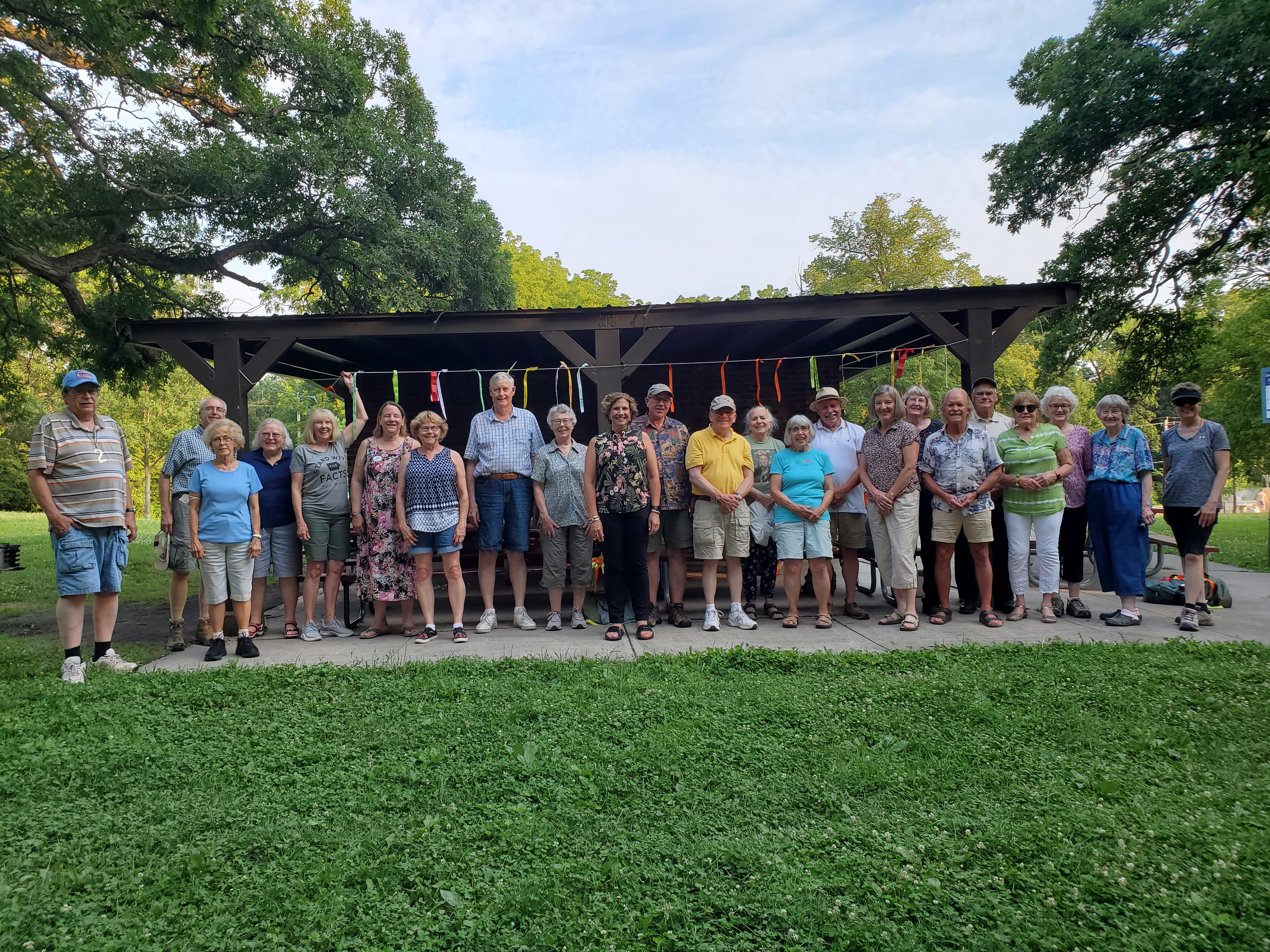
-
working on legislative issues
-
working on elections
-
fundraising
-
organizing events
-
joining an issue committee
If you would like to join a committee on the Peoples Budget, sign up here please fill out our People's Budget Volunteer Form so we can build our organizing team for this project. A large number of Sierra Club issues require some involvement with Iowa's state budget. Budgets reflect theories of government. Iowa’s political conversation rarely moves beyond the notion that government’s primary responsibility is to grow the economy. Hence we give corporations tax breaks, but slash funding for health care, environmental protections and public interest research at our three state universities. We hold a different view of government and that is government is the trustee of all the things we share - public roads and bridges, water, wildlife, air, public universities, state parks, education and public health. Therefore, protecting, enhancing and restoring our shared public wealth is the central responsibility of government. We must tie the budget to our priorities.
If you would like to join our legislative action team, sign up here. Keep on top of what is happening at the Iowa legislature. Be alerted when you should contact your legislators about pending legislation.
Contribute to the Iowa Chapter
Sierra Club - the best bet for achieving bold solutions to Iowa’s environmental problems
Sierra Club is Iowa’s oldest and largest grassroots environmental organization. Not only that, we are the best bet in the state for achieving bold solutions to Iowa’s environmental problems.
We work in the courts, before Iowa’s public agencies, and in the halls of the legislature. The Iowa Chapter's effort to protect the environment takes financial support. The Chapter receives very little financial support from the national Sierra Club. Can we count on you for a donation to ensure even more victories? Your contribution will be put to work here in Iowa on issues that affect every day Iowans – water quality, clean air, protection of Iowa's soil, parks and natural areas, and a strong democracy. The Iowa Chapter is relentless in fighting back bad legislation that affects every one of us. 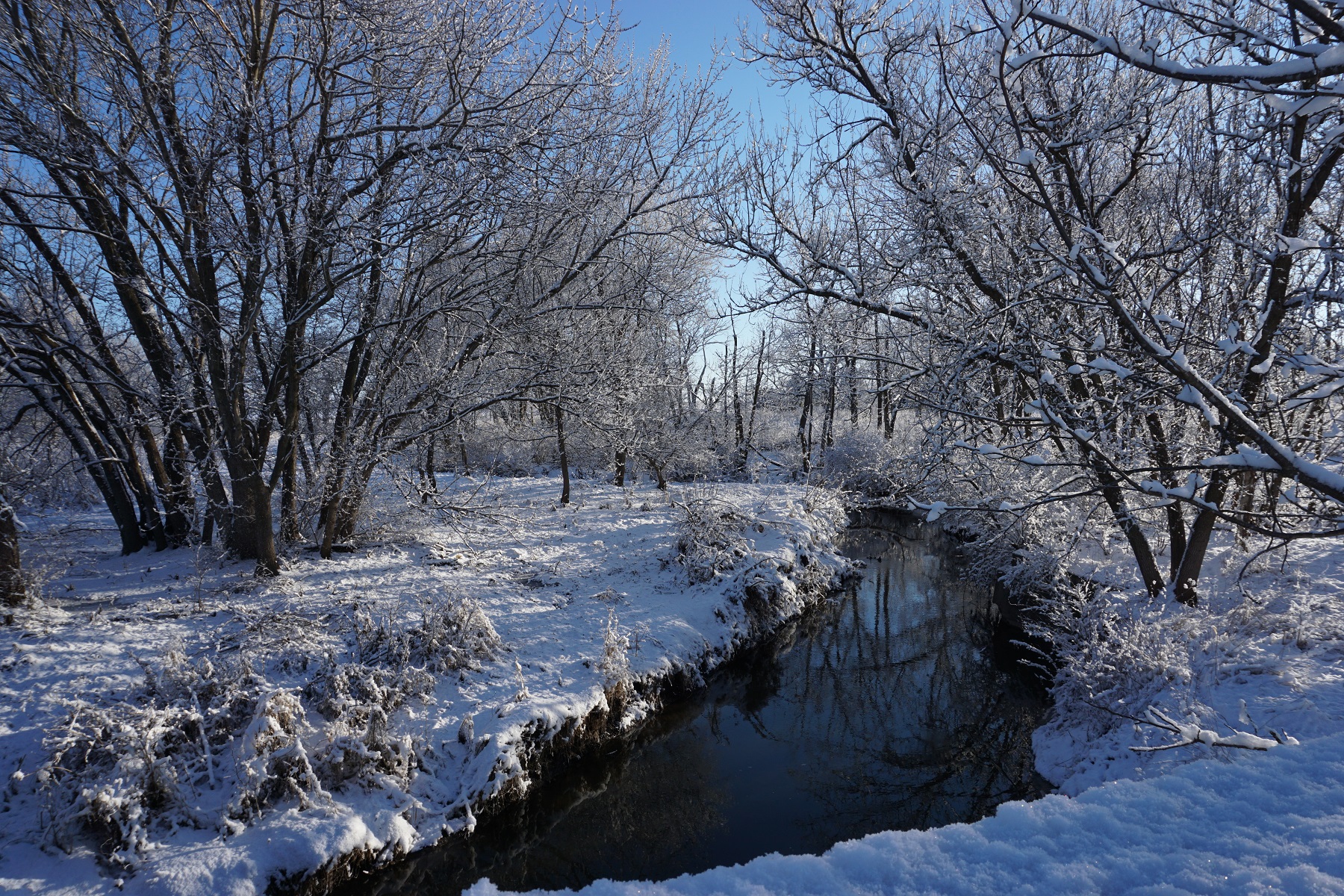
Your non-deductible contributions make it possible for us to fight bad legislation and to promote good legislation. We appreciate your past and on-going support of these efforts. You can make a non-deductible donation with a credit card. A non-deductible donation supports the Chapter's effective, citizen-based advocacy and lobbying programs. If you prefer, a non-deductible check can be written to the Sierra Club Iowa Chapter and mailed to:
Treasurer
Sierra Club, Iowa Chapter
PO Box 1058
Marion, IA 52302
You can also make a tax-deductible donation with a credit card. Tax-deductible activities are limited to public interest education, research and legal actions. A deductible check can be written to the Sierra Club Foundation with “Iowa Chapter” written in the memo line.
Thank you for your support.
Donate your used vehicle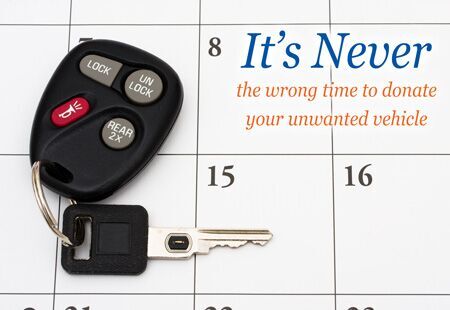
As the Sierra Club Foundation's Iowa Chapter continues to raise charitable funds to support its work in Iowa, won’t you consider participating in our vehicle donation program? Our partners over at CARS have made the process of donating your unused or unneeded car, truck, motorcycle, boat or RV easy, efficient and secure. They’ll take care of everything from picking up your vehicle to sending you a tax receipt for your generous gift. To learn more about The Sierra Club Foundation's Iowa Chapter vehicle donation program, please call 844-674-3772. Or visit our webpage to get started today!
Sierra Club Foundation promotes climate solutions, conservation, and movement building through a powerful combination of strategic philanthropy and grassroots advocacy. The Foundation is the fiscal sponsor of Sierra Club’s charitable environmental programs.
For more information
| When | Earliest: Latest: |
| What |
|
| Word or Phrase | Word or phrase to search for: |
| Leader | All or part of leader name to search for: |
No Matching Activities Found
Loading
| Date | Activity (click title for full description) | Sponsor | Category | Type | Difficulty | Links |
|---|
Loading ...
 Outing
Outing Club support event
Club support event  Social event
Social event  Activist event
Activist event  Multiple events (map only)
Multiple events (map only)